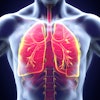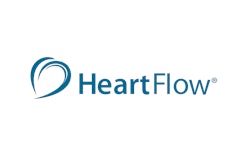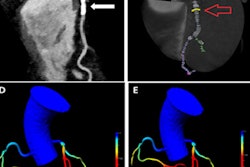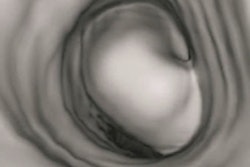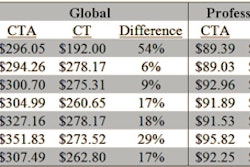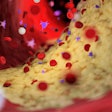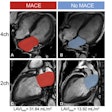Cardiovascular software developer HeartFlow is highlighting a study involving its fractional flow reserve (FFR) CT image analysis software that is being presented at this week's annual Transcatheter Cardiovascular Therapeutics (TCT) meeting in San Francisco.
The study, which is also being published in the Journal of the American College of Cardiology, estimates that HeartFlow's FFR-CT software could lower the cost of evaluating patients with suspected coronary artery disease by as much as 32%. It could also improve the patient's quality of life, according to the company.
Known as the Prospective Longitudinal Trial of FFR-CT: Outcome and Resource Impacts (PLATFORM), the study included more than 580 patients and compared standard diagnostic strategies with the company's HeartFlow Analysis technology. Patients were divided into two groups: one with a planned invasive test and another with a planned noninvasive test.
Next, patients in each group were enrolled into one of two sequential cohorts, one that followed the usual diagnostic path and one in which patients received a strategy guided by FFR-CT results. The research team, led by Dr. Mark Hlatky of Stanford University, calculated the cumulative medical costs for all patients over 90 days using the 2015 Medicare reimbursement rates and online pharmacy costs.
In the group of patients receiving a planned invasive test, the per-patient cost of medical care in the FFR-CT-guided strategy group was $7,343, 32% lower than the $10,734 per-patient cost for those receiving the usual-care strategy. The difference was statistically significant (p < 0.0001).
HeartFlow noted that these calculations do not include the cost of FFR-CT, as Medicare has not yet set a reimbursement rate for it. However, the researchers calculated that even if reimbursement was set at $2,100, the test would still save the healthcare system 20% over an invasive usual-care strategy, HeartFlow said.
In other results, FFR-CT was found to provide greater improvement in quality of life at 90-day follow-up than evaluation with usual noninvasive testing, HeartFlow said.


